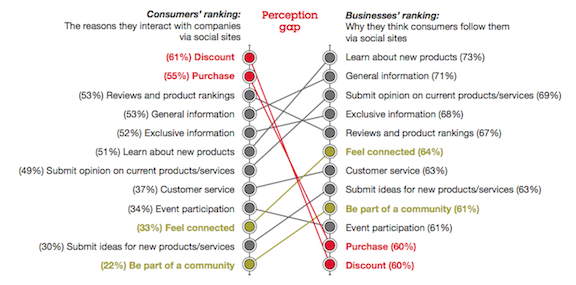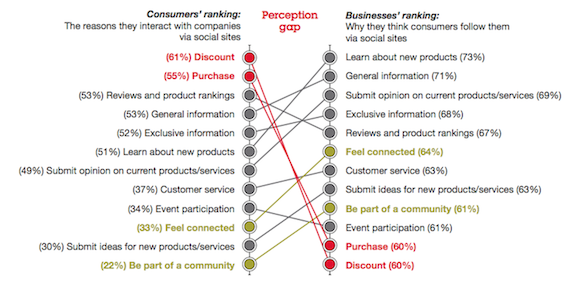Facebook, YouTube, and Yelp logos appear on the majority of small business ads and retail entryways. But should you create and manage a presence on social media for your company? This article will outline how to evaluate whether small businesses should or shouldn’t open up shop on these social networks and then explain the best ways to manage social media for your business.
Pro’s and Con’s of Social Media
First of all, let’s consider a few pro’s and con’s. On the plus side, social media enables businesses of all sizes to listen to and communicate with customers in real time. It provides a “free” channel to promote one’s business and provide customer service quickly. Many companies engage with “influencers,” customers that have a lot of influence or followers, online that love your company or brand and help spread the word. Lastly, some companies occasionally discover new product ideas via their customers.
On the down side, social media isn’t “free.” It actually requires a lot of time to manage. Another drawback of social media is the volume of clutter. There is no barrier to entry so every business can open a Facebook account. Consider how you can differentiate your company’s presence amidst all of that noise and really offer value to your customers.
Listen First
Before you open a Facebook or Twitter account, search for the products and services that your company offers. Are people really passionate about your product category online? Are they interacting with other companies in your sector? (Toilet Paper, for example, doesn’t typically elicit a huge response on social media.) Also, take a look at your competitors’ social media pages. Do their customers interact on the Facebook page? How many likes or fans do they have? Whatever you decide to do, reserve your page on Twitter and Facebook just to make sure that nobody steals your company’s brand name.
Next, put yourself in the shoes of the user. Think about how your customers would search for your product. What would they genuinely find useful? Take a look at this graph from the IBM Institute for Business Value entitled “What customers want”:
Source: IBM Institute for Business Value – From social media to Social CRM: What customers want, 2011
You can see that customers want discounts and the ability to purchase products and services online whereas businesses think that people just want “to learn about new products.” When you “listen” to consumers needs and wants on social media, identify how your content on your social media pages can attract customers to your stores and website. Be sure to have a realistic idea of what information will appeal to your customers and create a content plan for your social media pages before you launch one. You can cost effectively find out the answer to that question by sending an email survey (via services like Survey Monkey) or simply asking customers who come into your store.
Digital Strategy and ROI of Social Media
Digital marketing offers small businesses the ability to closely measure return on investment (ROI). Your social media plan needs to fit into your overall digital plan, where you make sure you measure every major initiative. Do your Twitter and Facebook pages drive visitors to make purchases on your website? Or can those pages even replace a webpage? Free tools like Google Analytics help small businesses understand website visitors’ needs and identify traffic sources that convert the most visitors into buyers online.
Success Stories
Of the many small businesses that utilize social media to promote themselves, Kogi Korean BBQ has become the most famous with over 101,000 followers on Twitter. It sells Korean-style tacos in Los Angeles and promotes its truck’s location exclusively through Twitter.
Suzi Johnson discovered that traffic to the website jumped over 1000% and e-commerce sales increased by over 630% all because of the new virtual pinboard and social network Pinterest. Johnson sells her luxury cashmere sweaters and dresses in two retail stores and decided to shut down her third store in part because her website, Souchi.com, had so dramatically increased its sales. Learn more about her story here.
Tips for Managing Social Media
Ironically, the best advice on managing social media was published before the Internet existed. Dale Carnegie’s book “How to Win Friends and Influence People” outlines fundamental approaches on how to build long-lasting relationships with colleagues and consumers. And the advice equally applies to making “friends” on social media. Here are a few of the best tips:
• Be a good listener. Encourage others to talk about themselves.
• Remember that a person’s name is to that person the sweetest and most important sound in any language.
• Talk in terms of the other person’s interests.
• Make the other person feel important – and do it sincerely.
• If you are wrong, admit it quickly and emphatically.
• Let the other person do a great deal of the talking. (in other words, re-tweet or re-post what your fans say)
Learn more about how to utilize these concepts here.
Conclusions
Social media isn’t for every business. It requires a lot of time, effort and planning. If your store associates or your family and friends like managing Facebook and Twitter for you, then it could be a good fit.
For more information about how to manage your social media, look for workshops hosted by your local branch of the Service Corps of Retired Executives (SCORE.org), part of the Small Business Association (SBA.gov). Social media consultants and advertising agencies oftentimes present at SCORE workshops where you can learn the specifics on how to launch and measure your social media efforts.
This article originally appeared on Health Net’s Business Pulse.









